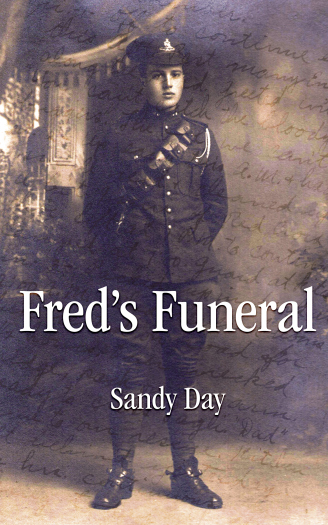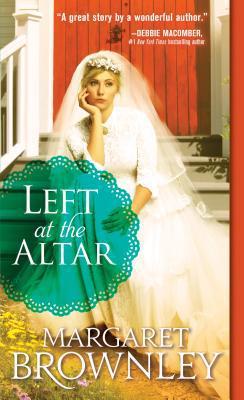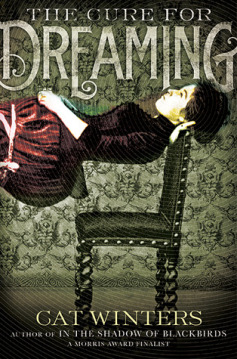
“Why is he here, a witness to his own funeral? In life, he would have slunk out the side door.”
– Fred’s Funeral (Locations 297-298)
The Plot
From Amazon: Fred Sadler has just died of old age. It’s 1986, seventy years after he marched off to WWI, and the ghost of Fred Sadler hovers near the ceiling of the nursing home. To Fred’s dismay, the arrangement of his funeral falls to his prudish sister-in-law, Viola. As she dominates the remembrance of Fred, he agonizes over his inability to set the record straight.
Was old Uncle Fred really suffering from shell shock? Why was he locked up most of his life in the Whitby Hospital for the Insane? Could his family not have done more for him?
Fred’s memories of his life as a child, his family’s hotel, the War, and the mental hospital, clash with Viola’s version of events as the family gathers on a rainy October night to pay their respects.
Writing Style
I commend Ms Day on the narrative that she tried to weave here, and the way in which she chose to do it. The entire book is a third person narrative, largely from Fred’s perspective but this shifts to other characters as well. There are also instances of first person narrative. I assumed the purpose of writing the story this way was to illustrate that Fred is no longer constrained by the corporeal application of linear time, and that his spirit can moved freely through his own memories, the memories relayed by those he is listening to, and does so seamlessly.
For the most part, this method worked very well. There were a few instances were tenses were mixed up and made the narrative a little difficult to read but on the whole it meant that the author was able to weave an extremely rich tapestry of memories, letters, oral stories and first hand accounts of one man’s life, his struggles and his (sometimes false) perceptions.
“He swore off people long ago, especially relatives, but now he needs them to know everything. He wants them to know, despite what Viola says about him, he didn’t come home from the war a blithering basket case or a blankly staring soul like the shell-shocked soldiers in the newsreels.” (Locations 432-434)
“Viola’s fridge and stove produced an annual supply of tomato aspic and jellied ham. In her kitchen drawers were a thousand rubber bands in handy baby-food jars waiting to be called into service, and she wound a perpetual ball of old cut pantyhose strips – knotted end to end. It braided up nicely into potholders. The ghost of Fred Sadler rolls the orbs that used to be his eyes.” (Locations 967-969)
“The story of Fred Sadler’s existence retreats into the background as his mourners reminisce about Lakeview House. Fred Sadler is as helpless to change the conversation now as he was in life. He hovers by the entrance to the parlour, hidden in the velvet curtains, listening miserably to the stories from which he is unnoticeably absent. He wants to turn away and not hear anymore. Sunshine beams over the stories of summertime and the light hurts Fred Sadler, makes him want to crawl under a blanket and hide.” (Locations 1854-1857)
The only real complaint I have is the overuse of Fred’s full name. This seems be be particularly bad in the first third of the book and eased off for the remainder. At one point, close to every second sentence started with “Fred Sadler”. I’m not sure if this was done for emphasis but it simply became tedious to read over and over again.
The Review
I felt an overwhelming sense of sadness as the story continued. Initially, I thought that Fred had simply grown old in a nursing home, with few visitors, and then passed away. This scenario would have been sad enough. However, the reader gains immeasurable insight into the life of a man whose life was largely not his own to govern and, at times, a life stolen from him. I appreciate the care and effort the author took in trying to relay the very real effects that PTSD has on the psyche, while still being able to illustrate the ineptitude of diagnosis during Fred’s time. I think that this would have been a difficult line to tow while writing. Ms Day would have had to create a narrative without personal judgement of the system that failed many men and women returning from war, even today.
At the start of the story, I found that didn’t like Fred very much but through his, and others, memories I softened and better understood this misunderstood man. Though he was unable to leave a legacy of children, he will always be remembered through letters that he wrote to his mother and brother, and through the retelling of his story by those who came after him.
I especially appreciated the author’s dedication:
This book would not have been possible without the hundreds of letters written by my Great Uncle Fred.
Thanks to my grandparents, my mother and father, my sisters, cousins, aunts and uncle who shared with me their remembrances of people, places, and times now gone.
I thoroughly enjoyed this book, and would recommend it to any reader who appreciates history, and has the empathy that allows them to understand the hardships that so many men and women must overcome in order to make a life for themselves. The more I think about Fred and his story, the more I like the book. There are few stories that truly stay with me once I’ve finished them. This one has definitely made an impression.
My rating: 4/5
Buy Fred’s Funeral on Amazon.
You might like:
The Dirty Parts of the Bible
Advertisements Share this:





